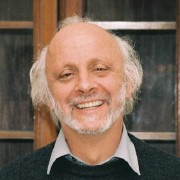I’m just back from one of the most popular events I can remember in my many years membership of SLA Europe. I’m not sure if it was the catchy title, the interesting speakers or the recent sad closure of the City Information Group that resulted in nearly 100 information professionals gathering in the Balls Brothers rooms at Minster Court this evening.
Kathy Jacobs the Library and Information Manager at Pinsent Masons, Professor David Nicholas Director of the Department of Information Studies at University College London and Professor Roger James Director of Information Services at University of Westminster talked about how Google is influencing our research behaviours, the challenges this brings to information professionals, as well as the opportunities new search technologies offer.
I should point out that as a rather hastily appointed Chair for the event, my view of the evening might be somewhat skewed. For a more balanced view from the audience I recommend you check out the Organising Chaos blog review. Melanie Goody has also written a short review on the TFPL blog. Sara at Uncooked Data has a more in depth review which I recommend reading.

Dave Nicholas was as controversial as I remember from way back when he was my lecturer at North London Poly (as it was then). He concentrated on the ‘D’ words of dis-intermediation and de-coupling caused by the Internet in general and Google in particular. He pointed out how we as information professionals can’t see what is going on in the digital space. Which has led him to monitor how researchers behave in cyber-space. His evidence shows that consumers want to dive in and out quickly, snatching bits of information. They want everything short and bite sized, preferring abstracts to full content. They scan web pages vertically, zooming past headings and sub-headings, instead of reading horizontally taking in the full text of every paragraph.
One of his most memorable points (which I have only just remembered four days later) was the views of consumers of a health information screen located in a Tesco branch. People seemed to assume that the information came from Tesco and were happy with that trusted brand as a source. However, when informed the content was actually coming from the National Health Service their confidence plummeted. As David put it, Tesco don’t make mistakes, wherease the NHS regularly lets its customers die.

Kathy Jacob reported on her real life experience of going from a meeting with a new manager who wanted to know why they needed a research library when ‘everything could be found with a Google search’, to building a federated search tool for her current firm. The lessons learnt were that the new system must have an equivalent usability, design and speed to Google in order for staff to even try it out. Kathy had the advantage of working in the legal sector, which enabled her to scare researchers with horror stories of cases which had collapsed due to relying on Google searches. In some cases the cost to the law firms involved and subsequent negative impact on the careers of the lawyers concerned were high.
Roger James began his session by asking the audience some provocative questions such as ‘who does the work for Google’? And ‘what is the next big search technology coming down the line’. The answer in both cases is ‘we are’. Every time we click on a link in Google we help them refine their search capability. He wanted to know how many members of the audience were applying this approach in their workplace. Or were they still relying on the old fashioned concepts of surveying their customers? His view was that unless we all join the Google ‘arms race’ we are doomed.
The speakers were followed up with a lively question and answer session from the audience. Which was followed by some intensive networking aided by tasty food and wine sponsored by EBSCO Information Services.

